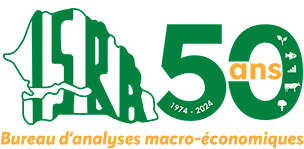« Initiative Agroécologique »
The CGIAR Initiative on Agroecology is a transdisciplinary, participatory, and action-oriented approach aimed at enhancing food system resilience, equity, and sustainability.
Challenge
Food systems worldwide are falling far short of sustainability goals. Not only do they leave a global total of 820 million people undernourished, they also worsen social inequities and — at every stage from food production to consumption — contribute to biodiversity loss, water pollution and natural resource depletion. Moreover, food systems account for about a third of global greenhouse gas emissions.
A redesign of food systems is urgently needed to achieve ecological, economic and social sustainability. Agroecology is gaining prominence as key to this radical shift. Evidence demonstrates how agroecological approaches can contribute to the development of sustainable, resilient agriculture and food systems.
However, despite many appropriate agroecological solutions at farm level, mechanisms for scaling them to broader food, land and water systems are limited. Barriers include : a) insufficient evidence on what innovations work where, when and why for widespread implementation ; b) insufficient integration of capacities and resources ; c) lack of, or misaligned, policies, institutions and governance ; and d) lack of financial mechanisms.
Objective
This Initiative aims to develop and scale agroecological innovations with small-scale farmers and other agricultural and food system actors across different socio-ecological contexts in seven low- and middle-income countries.
Activities
The Initiative has deliberately selected so-called Agroecological Living Landscapes (ALLs) in its eight target countries that are highly diverse, involving different organizations as well as various agricultural systems and environmental conditions. ALLs members and researchers design and test innovative practices, enhance the business appeal of preferred options, and bring about behavioral changes needed for rural people to transition to agroecology, with support from other FSAs.
More specifically, the Initiative :
Assesses and demonstrates which agroecological innovations (practices, business models, and institutional arrangements) work best, where, why, and for whom.
Identifies business opportunities and financial mechanisms for local enterprises to deal with agroecological innovations.
Develops strategies and action plans that encourage and support sustainable behavior change oriented to agroecological principles and transitions.
Determines the most suitable policies and mechanisms of policy integration for promoting effective and sustainable agroecological transitions.
Publications :
https://papers.ssrn.com/sol3/papers.cfm?abstract_id=4891979
https://agritrop.cirad.fr/607772/1/ATLAS_LAIT_FATICK_2023.pdf
https://bameinfopol.info/IMG/pdf/rapport_ateliers_dytael_fatick_novembre.pdf
https://cgspace.cgiar.org/items/2e508ec7-fd01-4127-89d1-cc9be655aa82
https://cgspace.cgiar.org/server/api/core/bitstreams/d515a0cf-7607-4cf0-b863-3fd73ceecf6e/content
https://agritrop.cirad.fr/607942/7/colective_intelligence_Fatick_DYTAEL.pdf
https://agritrop.cirad.fr/607958/1/WP2_LISP_SENEGAL_REPORT.pdf
https://cgspace.cgiar.org/server/api/core/bitstreams/d515a0cf-7607-4cf0-b863-3fd73ceecf6e/content
More information : https://www.cgiar.org/initiative/agroecology/
Duration : 2023-2024

